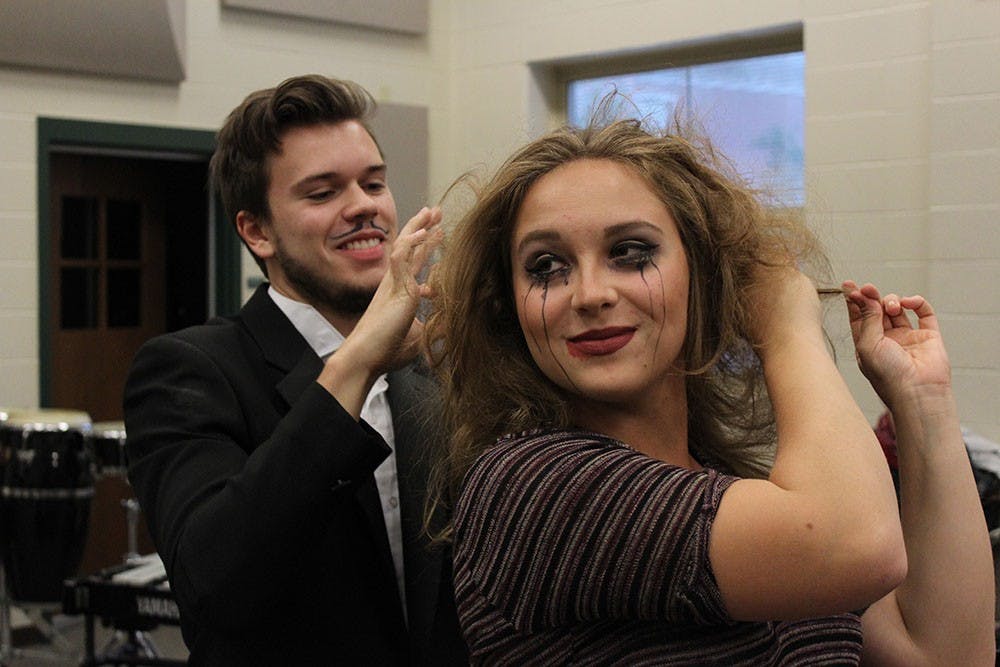The witch had one thing left to say as she burned at the stake in a small, English village.
She looked at the man who had put her there, the baronet, and cursed his family for the rest of time. He, and every baronet to follow him, would have to commit one crime every day or die in extreme agony.
For centuries, the baronets of Ruddigore could not continue their lives of crime and died excruciating deaths, until one young baronet tried to break the curse.
So starts the comic opera, “Ruddigore,” which will be performed at 7 p.m. Friday, 2 and 7 p.m. Saturday, and 2 p.m. Sunday at Jackson Creek Middle School by the University Gilbert & Sullivan Society. Performances are free and open to the public.
The Gilbert & Sullivan Society is a group of IU students who perform one opera per year from the famed duo Gilbert and Sullivan.
W.S. Gilbert and Arthur Sullivan wrote and composed 14 comic operas at the end of the 19th century, which are still performed all over the country today.
“It’s such a unique musical language that no other composer has rivaled,” the society’s producer, Will Perkins, said.
When Perkins founded the Gilbert & Sullivan Society in 2014, he chose to focus on the duo for multiple reasons. The operas are free to perform, which cuts down on costs, and the operas are always in English, making them accessible for a wider audience.
Olivia Maughan, the society's artistic administrator, said Gilbert and Sullivan operas are incredible training opportunities for young singers.
"It’s fun and it’s challenging," she said. "You’re always engaged."
This is Maughan's first year in the society and she is also performing Mad Margaret, one of the supporting roles. Maughan is an arts administration graduate student in the School of Public and Environmental Affairs, but wanted to join the society to gain more vocal experience.
The point of the group since its founding is to offer opera students more opportunities to perform. With six staged operas per year in the Jacobs School of Music compared to the number of students enrolled in the program, it’s mathematically impossible for everyone to have a role, Perkins said.
“I felt they were dying to share more of themselves,” Perkins said. “We needed a space where we could do something that was completely ours.”
The students in the society run every aspect of the performance, including costumes, lighting, set, rehearsals and props. With the group’s small budget, they focus mostly on costumes instead of an expensive set.
The set for “Ruddigore” is a simple background and one park bench on the right side of the stage.
“It puts a lot of responsibility on the performers to tell a story without a set to do it for them,” Perkins said. “It forces them to really step up the choices they make on stage.”
About 30 cast members and 20 orchestral players have been rehearsing since the first week of school to be ready to perform this weekend. Performers practice three hours each weekday and rehearse throughout the weekend.
But all of the performers are there because they want to be, Perkins said. There are no grades and no outside pressure to perform in the opera and because it’s all volunteer, the performance comes from the heart, he said.
Perkins will be leaving the society after he finishes his doctorate in the Jacobs School of Music this year, but he said he is confident the group will continue to flourish and grow.
“I started this company at a time in my life when I felt artistically dead,” he said. “I never imagined that it could do this. This has helped me define who I am as an artist and who I want to be as an educator and an advocate for the arts.”




